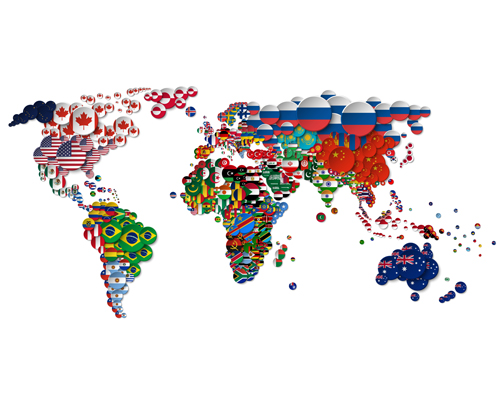International Logisticjobs
Personnel requirements for foreign assignments
Many German companies are represented with production, research and development sites in all regions of the world. The need for staff for foreign locations is therefore still high. Especially in the areas of logistics, production planning, supply chain management and supply chain planning, there are many possible uses for networking international locations and optimally designing global supply chain processes.

Foreign locations of
German companies
German companies have always traded worldwide and also had foreign subsidiaries. At the latest with the liberalization of the markets, the upheavals in Central and Eastern Europe after 1989 and the increasing global economic importance of the Asian countries, a worldwide division of labor has emerged, which on the one hand opened up new sales markets for German companies, but on the other hand also increased the international competitive pressure. Due to this increasing internationalization, companies felt compelled to react, to increase their competitiveness and to reduce costs. The export business had to be expanded and production processes had to be outsourced.
Above all in the large markets such as the USA or China, there can be another advantage in addition to the cost reduction in production and transport: if production is carried out in countries where the customers are, this has a positive influence on customer loyalty.
Other positive aspects speak in favor of an engagement abroad:
- Cheaper procurement of raw materials and simple but labor-intensive products or services.
- Savings through the creation of purchasing companies abroad: Fixed costs in purchasing fall, currency risks are reduced through procurement in foreign currencies, avoidance of punitive tariffs when importing certain raw materials and primary materials.
- Lower wage and ancillary wage costs, location and energy costs as well as land and building costs combined with the possibility of tax advantages.
- Distribution of production capacities to the sales markets in order to achieve the best possible utilization of the total capacities.
- Less strict requirements (e.g. genetic engineering, stem cell research).
- Higher availability of better trained employees.
How many employees work in a company at global locations is a good indicator of the international positioning of a company or a group of companies. At the top of the medium and large companies is the automotive supplier Leoni, where more than 90% of all employees work abroad. At the consumer goods group Henkel and the gas specialist Linde, more than 80% of employees work at foreign locations.
SKW Stahl-Metallurgie Holding, McKesson Europe AG, TUI, Brenntag, Hochtief and Stada also have a very large proportion of jobs in Europe, Africa, Latin America, North America, the Near and Far East and Australia.
Not only production and assembly, but also research locations are operated worldwide. Around 30% of German companies are now doing research abroad. These are mainly active in the IT manufacturing, mechanical engineering, automotive supply industry and electrical engineering sectors. In addition to the chemical and pharmaceutical group Bayer, the automotive supplier Bosch, the chip manufacturer Infineon and the pharmaceutical specialist Merck also conduct research at international locations.

